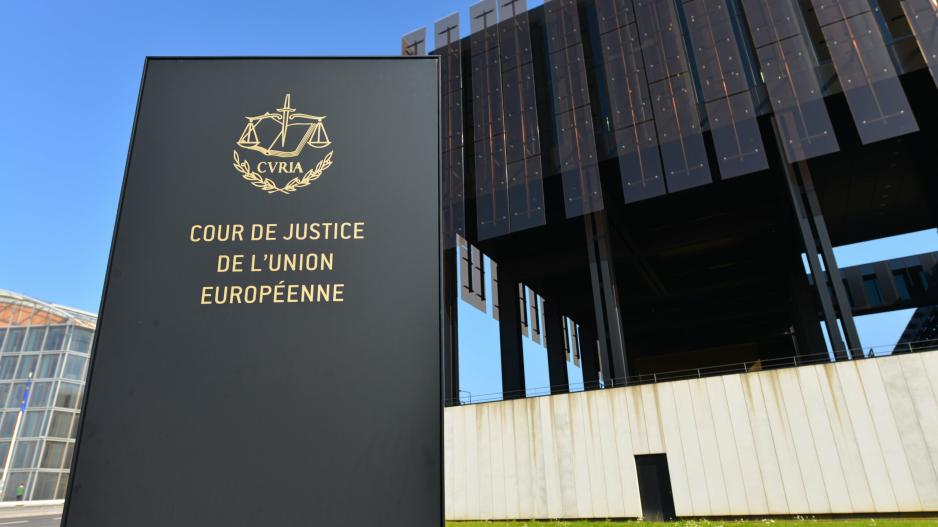EU Refers Cyprus to Court Over Global Minimum Taxation Non-Compliance
European Commission Takes Legal Action Against Cyprus, Spain, Poland, and Portugal for Failing to Implement Pillar 2 Directive
The European Commission has announced its decision to refer Cyprus, along with Spain, Poland, and Portugal, to the Court of Justice of the EU for failing to transpose into national law the directive on ensuring a global minimum level of taxation for multinationals and large domestic companies (Pillar 2 Directive).
The decision was made public as part of the European Commission’s October infringement package, published on Thursday. In the same package, the Commission also initiated a new infringement procedure related to the Professional Qualifications Directive, particularly concerning architects, and issued reasoned opinions to Cyprus, Czechia, and Portugal regarding their compliance with the Digital Services Act.
Infringement procedures are the European Commission's method of taking legal action against Member States that fail to meet their obligations under EU law. In many cases, the issues are resolved before the Commission needs to pursue further action, but such procedures can result in sanctions or fines imposed by the Court of Justice of the EU.

In its primary decision impacting Cyprus, the Commission decided to refer the country, along with Spain, Poland, and Portugal, to the Court of Justice of the European Union for failing to notify the required measures for transposing Council Directive 2022/2523 of 15 December 2022, which aims to ensure a global minimum level of taxation for multinational enterprise groups and large domestic groups in the EU (Pillar 2 Directive).
All EU Member States were required to implement the necessary laws to comply with the Pillar 2 Directive by 31 December 2023 and immediately communicate these measures to the Commission. These provisions have been applicable since 31 December 2023.
While most EU Member States have complied with this directive, Spain, Cyprus, Poland, and Portugal have yet to notify the Commission of their national implementing measures. Despite the Commission acknowledging that significant efforts are being made by the authorities to finalize their Pillar 2 legislation, compliance has not yet been achieved. Reasoned opinions were sent to these countries in May 2024.
The transposition of this directive is crucial for implementing Pillar 2, the minimum taxation component of the G20/OECD's international tax reform. Pillar 2 is intended to curb the race to the bottom in corporate tax rates.
According to the new rules, large multinational and domestic groups with a combined annual turnover of at least €750 million will be subject to a minimum effective tax rate of 15%.
The Commission prioritizes the implementation of Pillar 2 because it helps mitigate the risks of tax base erosion and profit shifting, ensuring that the largest multinational groups pay the agreed-upon global minimum corporate tax rate.
In addition to the above, the Commission has opened an infringement procedure against Cyprus for non-compliance with the Professional Qualifications Directive, specifically concerning architects with acquired rights—those permitted to practice under specific provisions.
According to the Commission, current Cypriot rules prevent these architects from joining the professional chamber, unlike other architects holding Cypriot qualifications. This limitation affects their benefits and practice conditions.
The Commission has issued a letter of formal notice to Cyprus, giving the country two months to respond and address the concerns raised. If Cyprus fails to provide a satisfactory response, the Commission may proceed by issuing a reasoned opinion.

Lastly, the European Commission has sent reasoned opinions to Cyprus, Czechia, and Portugal, following formal notices issued in April 2024. Despite communications since April, these Member States have yet to empower their designated Digital Service Coordinators to implement the Digital Services Act (DSA).
Moreover, they have not yet established rules regarding penalties for breaches of the DSA.
Member States were required to designate Digital Services Coordinators—independent regulatory authorities responsible for overseeing the DSA’s implementation and enforcement—by 17 February 2024.
Fully empowered Digital Services Coordinators in each Member State are essential for ensuring that the new rights under the DSA can be exercised, such as allowing users to lodge complaints against online platforms.
The Member States have two months to comply with the reasoned opinions. Should they fail to do so, the Commission may refer them to the Court of Justice of the European Union.






